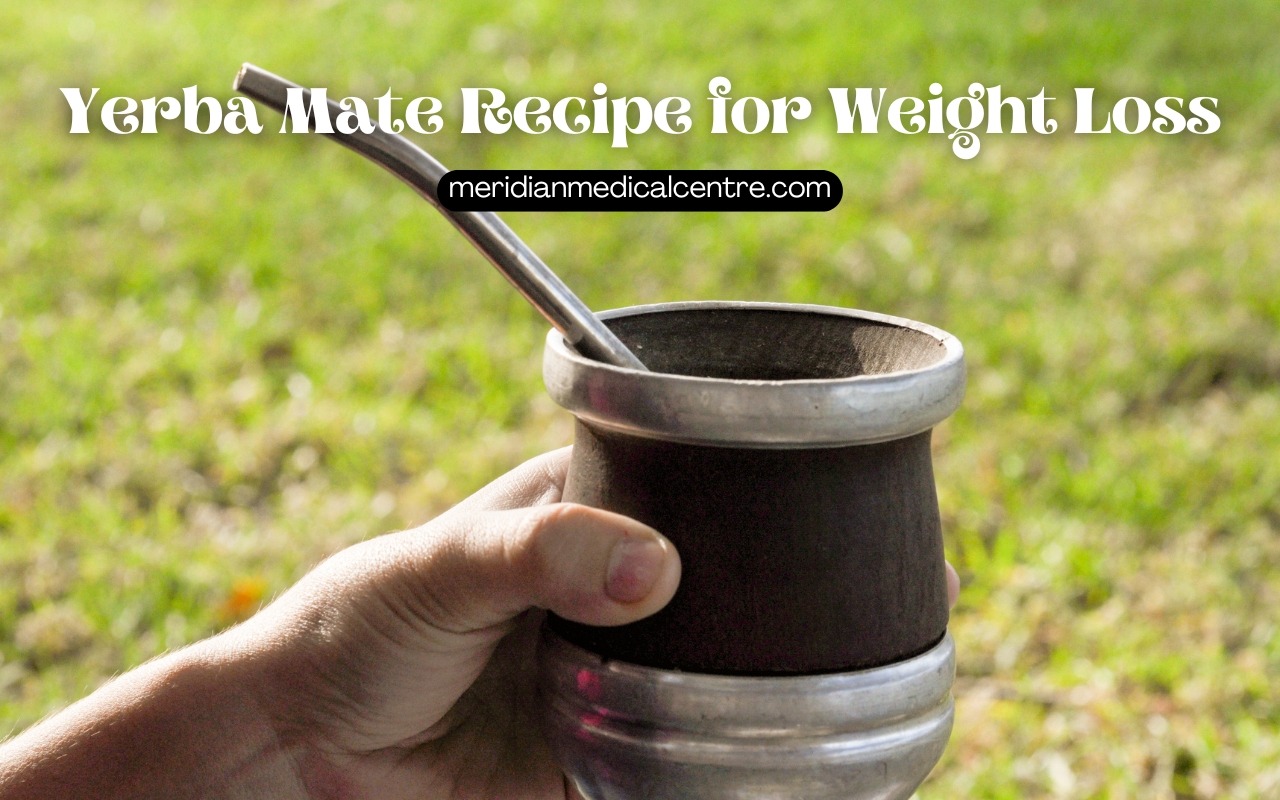
Meridian Medical Centre provides evidence-based, informative content on natural wellness approaches that complement clinical care. Our mission is to empower individuals with scientifically validated health choices, offering a balanced perspective on how natural products, including yerba mate, may support overall well-being. While holistic solutions have their place in wellness, we emphasize consulting healthcare professionals for personalized medical guidance.
Introduction
Yerba mate (Ilex paraguariensis), a traditional herbal tea from South America, has gained popularity worldwide for its metabolic and energy-boosting properties. Often used as a natural stimulant, yerba mate is rich in bioactive compounds that may enhance thermogenesis, support fat metabolism, and aid weight management.
This article presents a clinically-informed review of yerba mate’s potential benefits for metabolic health and weight loss, along with an evidence-based recipe for safe and effective consumption.
Scientific Basis for Yerba Mate and Weight Loss
1. Thermogenesis and Energy Expenditure
Yerba mate contains xanthines—natural stimulants like caffeine, theobromine, and theophylline—which activate the central nervous system, promoting calorie burning and increased energy expenditure.
- A 2019 study in Obesity Reviews found that caffeine-containing beverages, including yerba mate, enhanced fat oxidation and reduced fat accumulation over time.
- Yerba mate’s polyphenols and saponins also contribute to its thermogenic effects by modulating fat cell metabolism.
2. Appetite Regulation and Satiety
Research suggests that yerba mate may play a role in appetite control by modulating hunger-related hormones.
- A 2020 study in Nutrition & Metabolism found that participants who consumed yerba mate reported reduced food intake and increased satiety, suggesting its potential role in hunger management.
- Yerba mate’s xanthines interact with adenosine receptors, helping to reduce fatigue while regulating hunger signals in the brain.
3. Lipid Metabolism and Fat Breakdown
Yerba mate contains caffeoyl derivatives that may enhance fat breakdown (lipolysis) by activating key enzymes involved in energy production.
- A 2021 study in Phytotherapy Research found that individuals consuming yerba mate experienced higher rates of fatty acid oxidation, further supporting its role in weight loss and metabolic efficiency.
Clinically-Approved Yerba Mate Recipe for Weight Loss
Ingredients:
- 1 tablespoon loose-leaf yerba mate (or 1 yerba mate tea bag)
- 1 cup hot water (150-170°F or 65-75°C) (to preserve bioactive compounds)
- 1 teaspoon lemon juice (to enhance antioxidant activity and metabolic function)
- 1 teaspoon raw honey or stevia (optional, to balance bitterness without excess calories)
- Ice cubes (optional, for a chilled version)
Preparation Instructions:
- Heat Water: Avoid boiling water (above 175°F), as excessive heat may degrade some beneficial compounds.
- Prepare Yerba Mate: Place 1 tablespoon loose-leaf yerba mate in a tea infuser or teapot. If using a tea bag, simply place it in your cup.
- Steep the Tea: Pour hot water over the yerba mate and allow it to steep for 5 minutes to fully extract its xanthines and antioxidants.
- Enhance with Lemon: Add a splash of lemon juice, which helps improve polyphenol absorption.
- Optional Sweetener: Stir in raw honey or stevia for taste without excessive sugar intake.
- For Iced Yerba Mate: Allow the tea to cool and pour over ice cubes for a refreshing metabolism-boosting beverage.
Optimizing Weight Loss with Yerba Mate
- Consume Before Meals: Drinking yerba mate 30-60 minutes before meals may help reduce appetite and prevent overeating.
- Stay Hydrated: Yerba mate has mild diuretic properties, so adequate water intake is recommended.
- Pair with a Balanced Diet: For optimal results, integrate yerba mate into a diet rich in lean proteins, fiber, and healthy fats.
- Incorporate Exercise: Yerba mate’s stimulatory effects may enhance workout performance and fat oxidation.
Safety Considerations and Potential Risks
While moderate consumption of yerba mate is considered safe, excessive intake may pose risks:
1. Caffeine Sensitivity
Some individuals may experience:
- Insomnia
- Increased heart rate
- Jitteriness or anxiety
2. Cancer Risk with High-Temperature Consumption
Long-term consumption of very hot yerba mate may be associated with esophageal cancer due to polycyclic aromatic hydrocarbons (PAHs). To mitigate risk, allow the tea to cool slightly before drinking.
3. Drug Interactions
Yerba mate may interact with certain medications, including:
- Stimulants (e.g., ephedrine, amphetamines)
- Blood pressure medications
- Antidepressants (e.g., fluvoxamine)
- Muscle relaxants (e.g., tizanidine)
Patients taking these medications should consult a healthcare provider before incorporating yerba mate into their regimen.
Conclusion: A Science-Backed Approach to Yerba Mate and Weight Management
Yerba mate is a functional herbal tea with scientifically supported benefits for metabolism, fat oxidation, and appetite regulation. When used responsibly within a structured wellness plan, yerba mate can complement weight management efforts.
For individuals seeking a natural and clinically-informed weight loss solution, yerba mate presents a compelling option. However, it should be consumed in moderation, with careful attention to caffeine sensitivity, preparation methods, and potential medication interactions.
At Meridian Medical Centre, we emphasize scientifically validated wellness solutions that integrate natural health strategies with clinical expertise. Patients should always seek professional guidance before implementing new dietary changes to ensure safety and efficacy.
By following this evidence-based recipe and best practices, individuals can optimize the metabolic benefits of yerba mate while maintaining a safe and balanced approach to weight loss.